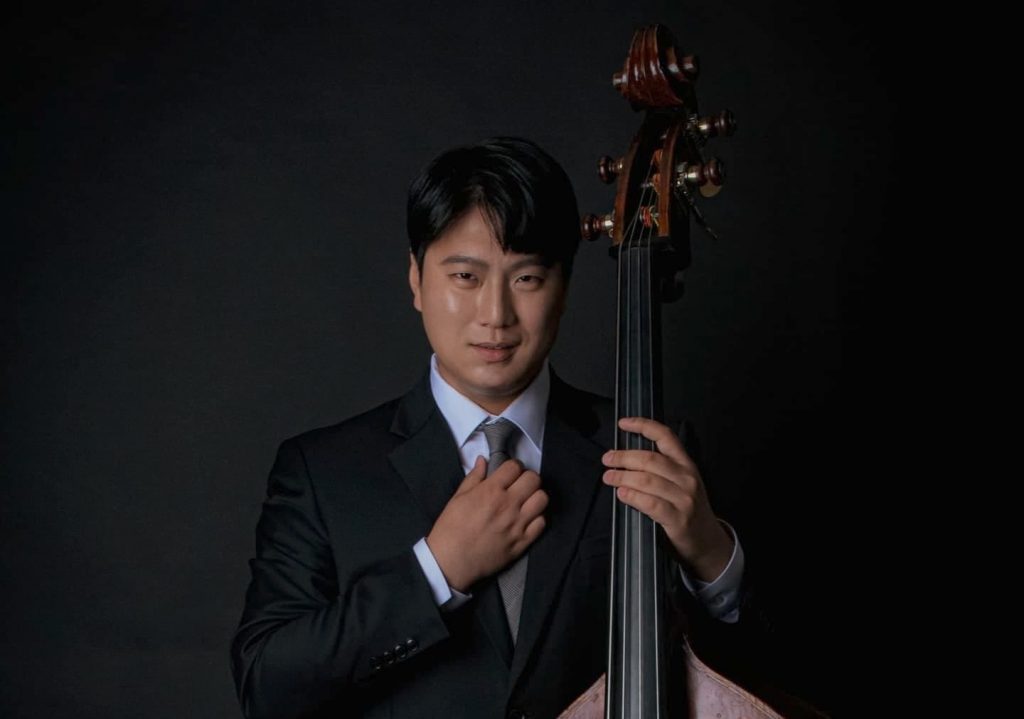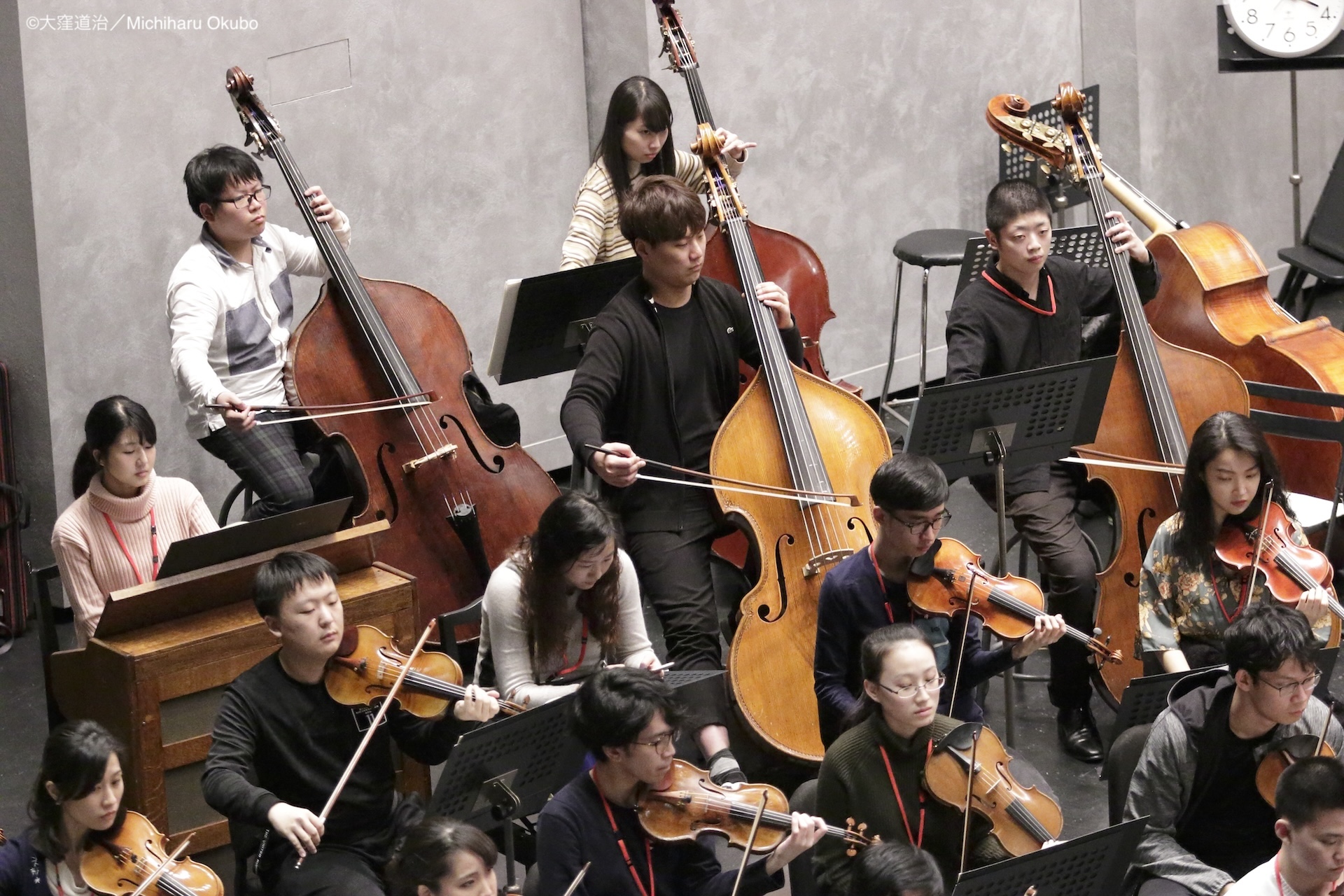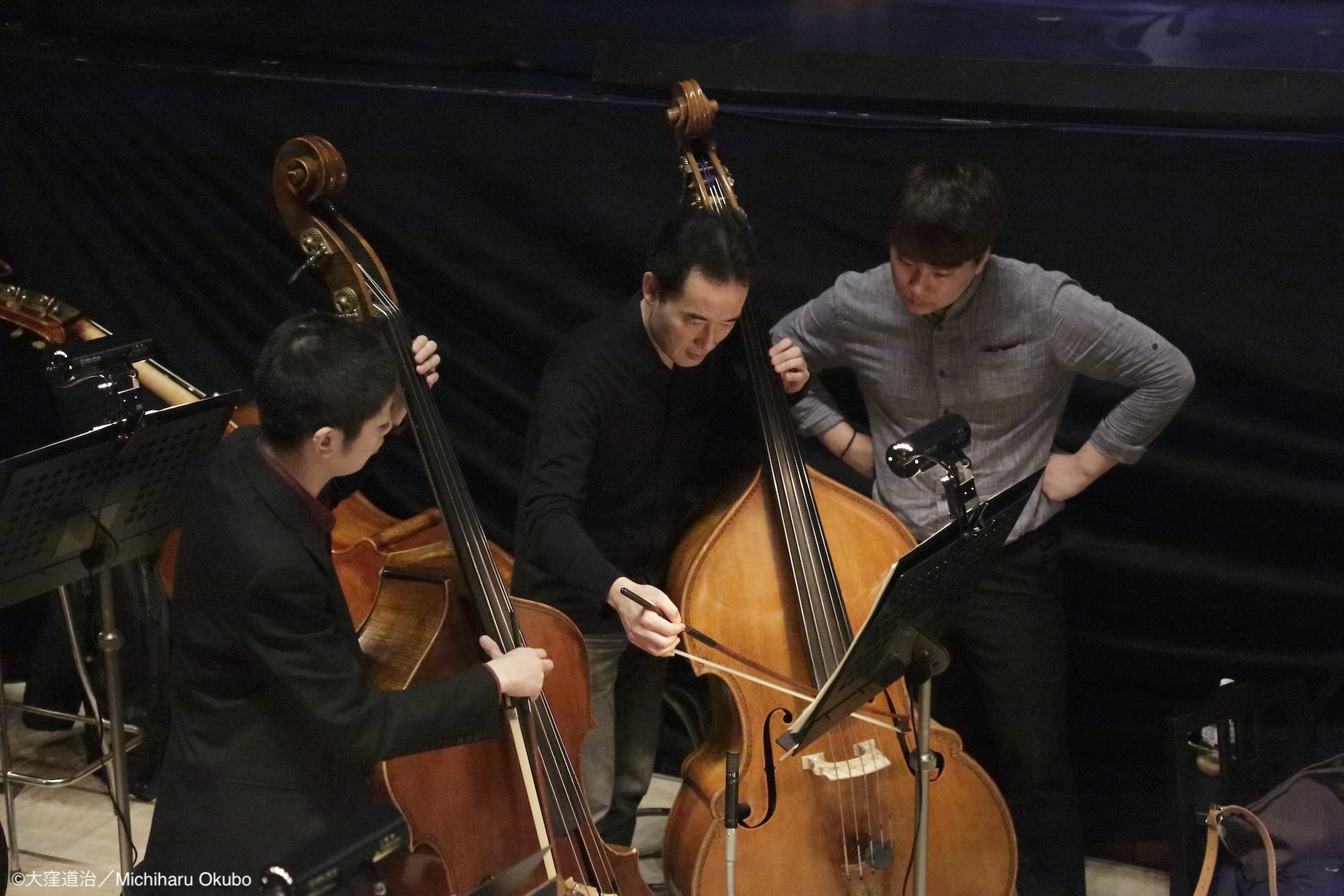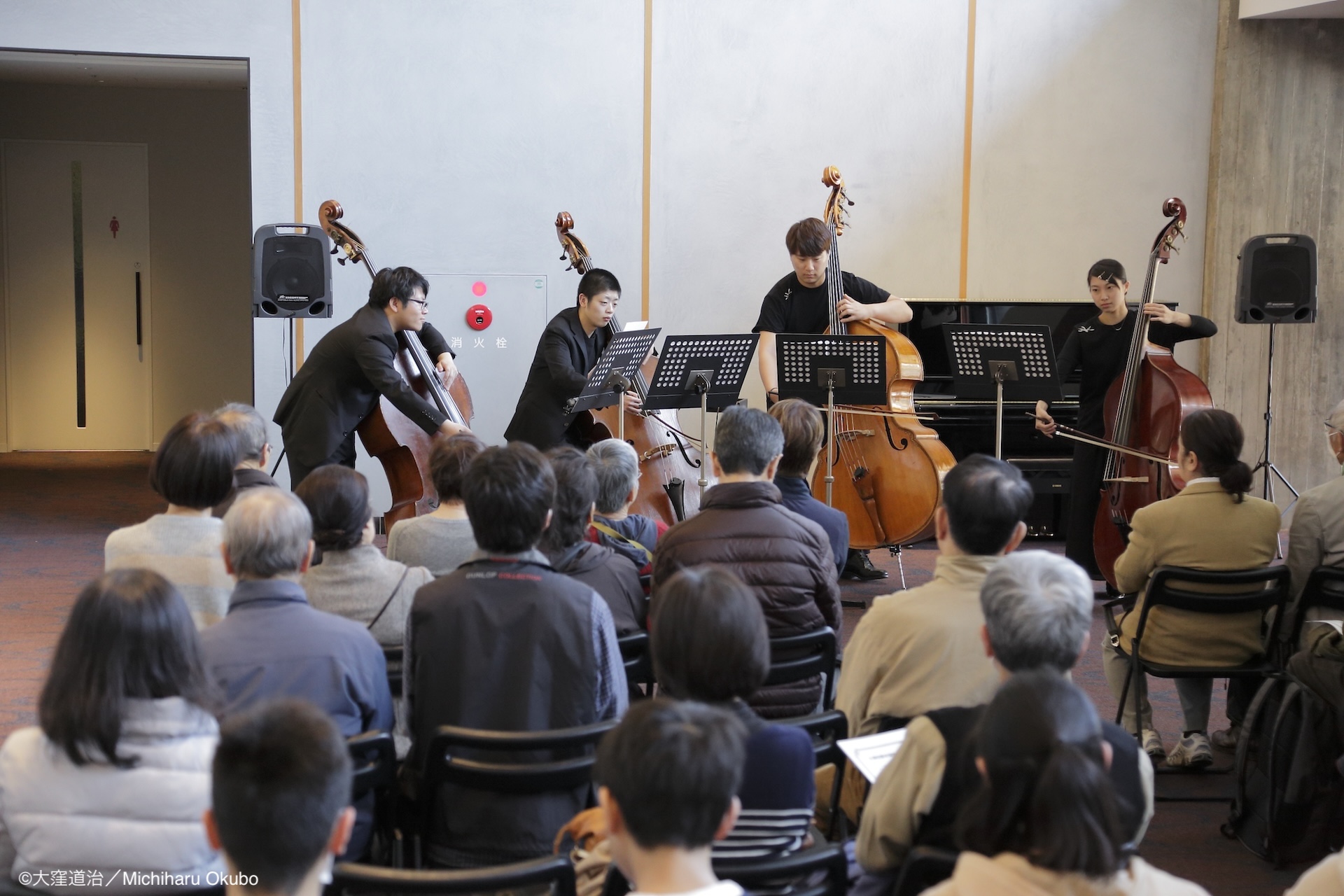
An interview with Seiji Ozawa Music Academy alumnus Chaemun Im, Contrabass, London Symphony Orchestra
More than 1,000 musicians have studied at the Seiji Ozawa Music Academy, and many are now active in the music scene both in Japan and around the world. Among them is Chaemun Im, a double bassist from South Korea with the London Symphony Orchestra. He recently looked back on his experiences at the Seiji Ozawa Music Academy.
林 采文
Chaemun Im
Contrabass, London Symphony Orchestra
[Participation history in the Seiji Ozawa Music Academy]
2018 Seiji Ozawa Music Academy Opera Project XVI
Giacomo Puccini: Gianni Schicchi
Maurice Ravel: L’enfant et les sortiléges
2018 Seiji Ozawa Matsumoto Festival
Concert for Children, Opera for Children
─Could you tell us about how and what brought you to join the music academy?
In 2017, I first heard about this academy from friends at the same university. They had already participated in the Ozawa Academy multiple times and strongly recommended it to me.
─Are there any lessons or instructions from the teachers that you still remember or found particularly impactful?
In 2018, we performed Ravel’s opera L’enfant et les sortilèges. The opera opens with a duet between two oboes and a double bass solo. Hiroshi Ikematsu taught me that I needed to project a sound that could reach the audience at the very back of the second floor, rather than just a sound that was comfortable for me to hear. His advice remains essential and is something I keep in mind even now, and I will continue to consider it in the future.
─What do you think are the main differences between orchestra classes at school and the guidance you received at the academy?
At school, because there are not only orchestras but also various classes, I feel that it’s unfortunately difficult to study in a highly systematic way. However, at the Ozawa Academy, I was able to learn detailed techniques, musicality, the attitude of a performer, and even small skills that come from experience. I learned so much, including how to communicate with other instruments, how to follow a conductor, and, at times, when to step back.
─Do you feel that what you’ve learned at the academy has had an impact on your subsequent performances?
Two years after finishing the academy, I became an academist with the Bavarian Radio Symphony Orchestra in Munich, Germany. Every week, I had to perform an extensive repertoire with some of the world’s best musicians and conductors, and I believe it would have been incredibly challenging without my experience at the Ozawa Academy. Thanks to the solid foundation and experience I gained there, I was able to succeed. I would say that the Ozawa Academy was a “turning point” that changed the course of my musical life.


